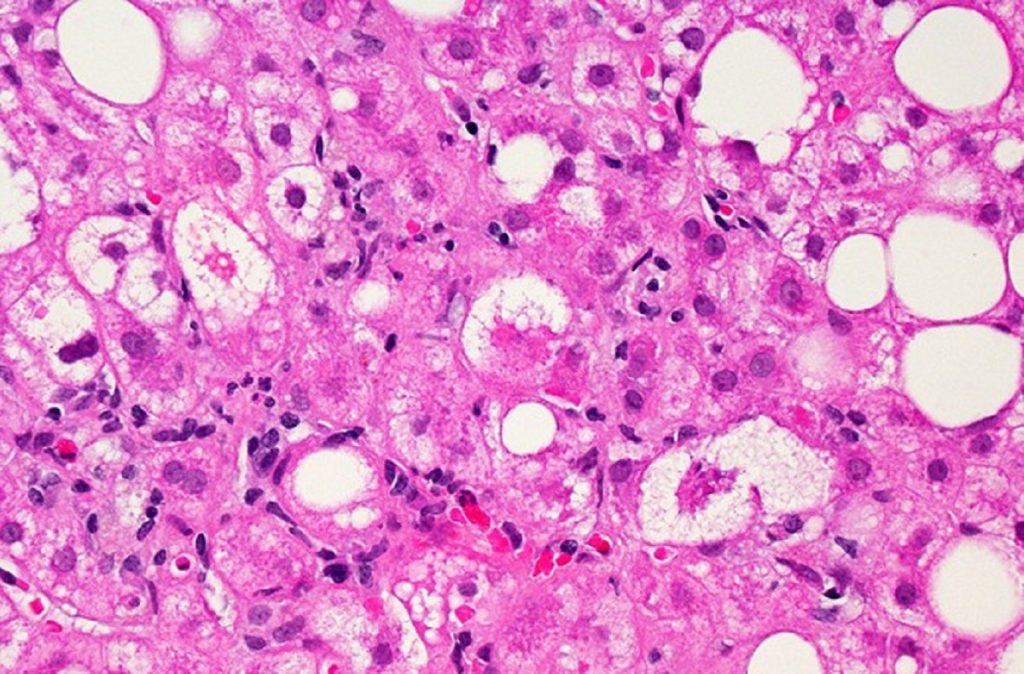Immunotoxin Treatment Stops Liver Fibrosis

A new study successfully used immunotoxins to prevent the progression of liver fibrosis by targeting a protein specific to that disease.
Fibrosis, the buildup of collagen and scar tissue, can be caused by alcohol abuse and disease. University of California San Diego School of Medicine researchers and their collaborators are looking for ways to treat fibrosis by preventing liver cells from producing collagen.
“So we thought…what if we take immunotoxins and try to get them to kill collagen-producing cells in the liver,” explained team lead Tatiana Kisseleva, MD, PhD, associate professor of surgery at UC San Diego School of Medicine. “If these antibodies carrying toxic molecules can find and bind the cells, the cells will eat up the ‘gift’ and die.”
The study focussed on immunotoxins designed to bind a protein called mesothelin, which is rarely found in the healthy human body. The protein is only produced by cancer cells and collagen-producing liver cells, known as portal fibroblasts.
Kisseleva teamed up with co-author Ira Pastan, MD, at the National Cancer Institute, part of the National Institutes of Health (NIH). Dr Pastan is co-discoverer of mesothelin and an expert on using immunotoxins to target the protein on cancer cells, and he leads several clinical trials using it in treating patients with ovarian cancer, mesothelioma and pancreatic cancer.
Since the immunotoxins specifically recognise human mesothelin, the researchers couldn’t use a traditional mouse model of liver fibrosis. So, they transplanted human liver cells isolated from patients to mice and treated them with the anti-mesothelin immunotoxin. Compared to untreated mice, 60 to 100 percent of human mesothelin-producing cells were killed by the immunotoxins, which also reduced the deposition of collagen.
Liver fibrosis treatment is very limited at present, with weight loss being currently the only known method for reducing liver fibrosis associated with non-alcoholic fatty liver disease. Alcoholic liver disease is most commonly treated with corticosteroids, but they are not highly effective. Early liver transplantation is the only proven cure, but it is rarely available.
“What we want to know now is, can this same strategy be applied to other organs?” Dr Kisseleva said. “Surprisingly enough, the same cells are responsible for fibrosis in the lung and kidneys. This is especially exciting because we already know from Dr Pasten’s cancer clinical trials that anti-mesothelin immunotoxins are safe in humans, potentially speeding up their application in other areas.”
The findings were published in Proceedings of the National Academy of Sciences
Source: University of California San Diego
Journal information:Nishio, T., et al. (2021) Immunotherapy-based targeting of MSLN+ activated portal fibroblasts is a strategy for treatment of cholestatic liver fibrosis. PNAS. doi.org/10.1073/pnas.2101270118.

